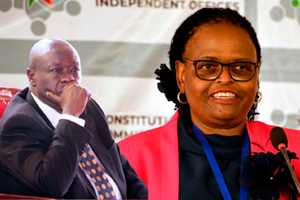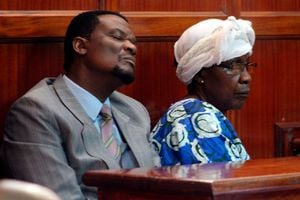Relief for governor but questions linger on ouster
The quashing by the Senate of Meru Governor Kawira Mwangaza’s impeachment is a huge New Year’s gift for the embattled county chief but has also stirred debate on the use of this option by county assemblies.
The 11-member special committee found that none of the charges against her had been proved. It confirms that one of the key tools and constitutional provisions to prevent abuse of office actually works. The anxiety for the governor and her supporters is over, but it comes with some soul-searching.
Leaders exercise their mandate for the benefit of the citizens and not their own whims. Governor Kawira should reflect on her conduct, which sparked this inquiry.
She may have been given a clean bill of health this time around, but she cannot just ignore the message from her opponents. The MCAs must also ask themselves if the accusations against the governor warranted impeachment or could have been resolved by other means.
Impeachment was built into the 2010 Constitution to prevent abuse of office. However, this should be exercised only as the last resort. The Senate committee did not find evidence of illegal appointments, forcible entry into the county assembly precincts, violation of regulations and misconduct. The unanimous decision was that none of the charges was proved.
Accusations
The governor had been accused of making illegal appointments and dismissals, incitement, bullying, usurping statutory functions and violating public finance management rules.
On the floor of the House yesterday, senators raised important points on the threshold for impeachment and why it was important to protect this crucial process against abuse.
Leaders do not have a blank cheque to do as they wish. Whenever differences arise, they should consult broadly to avert a costly crisis. In the past 10 years —and there is no suggestion that this was the case in Meru — some MCAs have engaged in extortion or blackmail, violating their oversight role.
Then there is the issue of governors’ wives and husbands. While county first ladies and first gentlemen have a role to play as spouses, it should not interfere with official decision-making or the running of counties.
The Meru governor’s husband was at the centre of the accusations thrown out by senators. Indeed, the concerns about his seemingly overbearing presence remain. Leaders should work within the official structures to tackle any governance challenges.





